

Our blogs
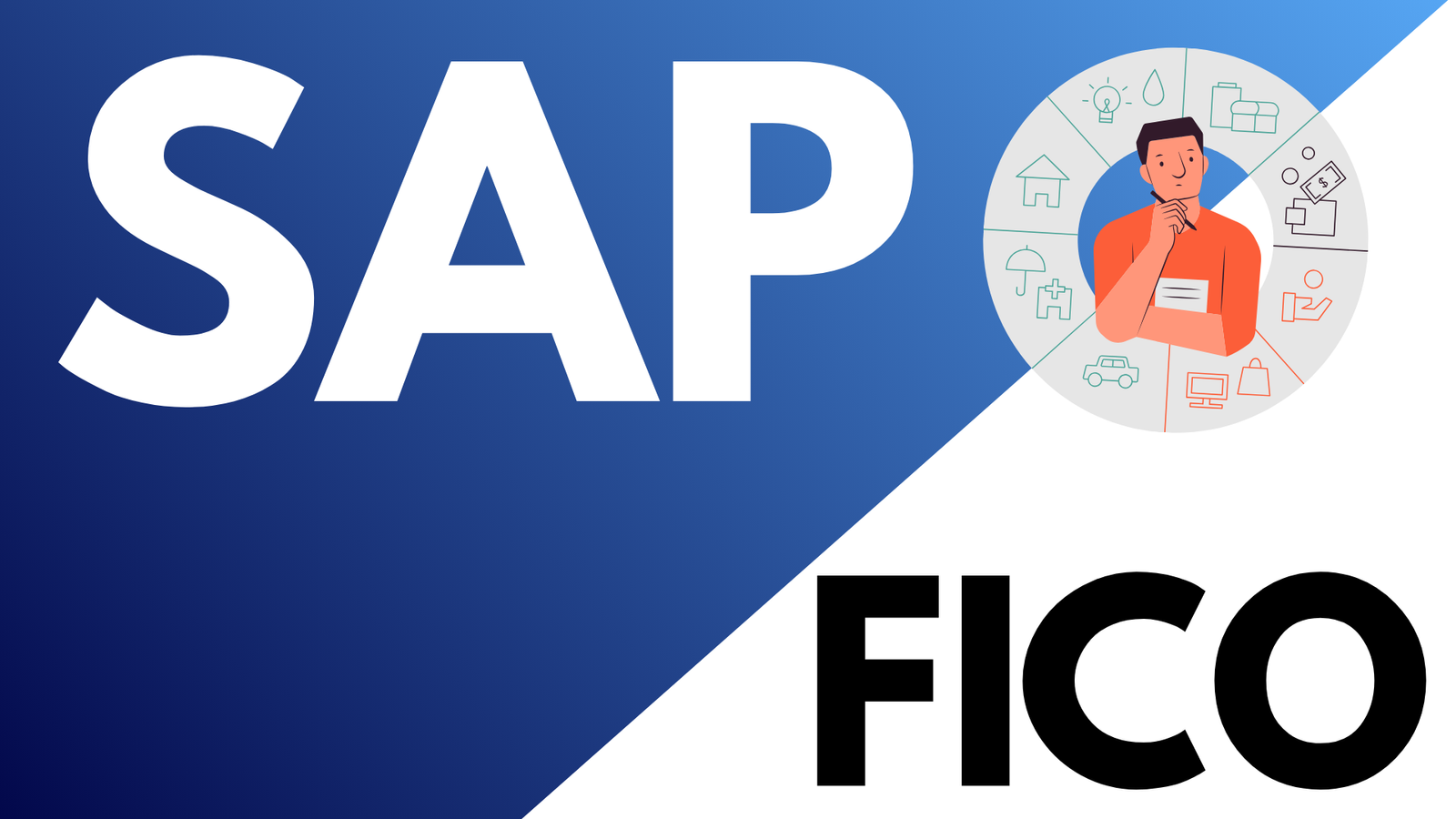
Why SAP FICO is a Must-Learn Module for Finance Professionals in 2025
Introduction
In today’s fast-paced digital economy, businesses are increasingly relying on integrated ERP systems like SAP to manage their operations efficiently. Among the various SAP modules, SAP FICO (Financial Accounting and Controlling) stands out as a core component. Whether you’re a finance graduate, an accounting professional, or an ERP enthusiast, mastering SAP FICO can open up vast career opportunities.
What is SAP FICO?
SAP FICO is a combination of two integrated modules:
- FI (Financial Accounting): Manages financial transactions, external reporting, balance sheets, and P&L statements.
- CO (Controlling): Handles internal reporting, cost centers, profit centers, budgeting, and planning.
Together, these modules help organizations track and manage their financial conditions effectively in real-time.
Why Should You Learn SAP FICO?
High Demand in the Job Market:
- Companies around the world use SAP for their financial operations.
- SAP FICO consultants are needed across industries—manufacturing, retail, healthcare, and more.
Lucrative Career Opportunities:
- High salaries and roles such as SAP FICO Consultant, Financial Analyst, ERP Specialist.
Global Recognition:
- SAP certifications are valued by top multinational companies.
- Open doors to international job markets.
Real-Time Business Insights:
- Provide actionable insights to support business decisions using real-time financial data.
Future-Ready Skills:
- Adapt your skillset for SAP S/4HANA and evolving digital finance landscapes.
Who Can Learn SAP FICO?
- Finance or commerce graduates
- CA/ICWA/CPA professionals
- MBA (Finance) holders
- Accounting professionals seeking career growth
- ERP/IT professionals looking to specialize
Our SAP FICO Training Highlights:
- ✅ One-on-one expert mentoring
- ✅ Real-time project exposure
- ✅ Hands-on with S/4HANA
- ✅ Interview preparation support
- ✅ Certification guidance
Conclusion
SAP FICO remains one of the most vital and in-demand modules for finance professionals in 2025. Whether you're starting out or advancing in your finance career, FICO offers a clear, lucrative path forward. Equip yourself with future-ready skills and become a valuable asset in the global finance domain.
📞 Ready to start your SAP FICO journey? Contact Us or 📧 Enroll Now
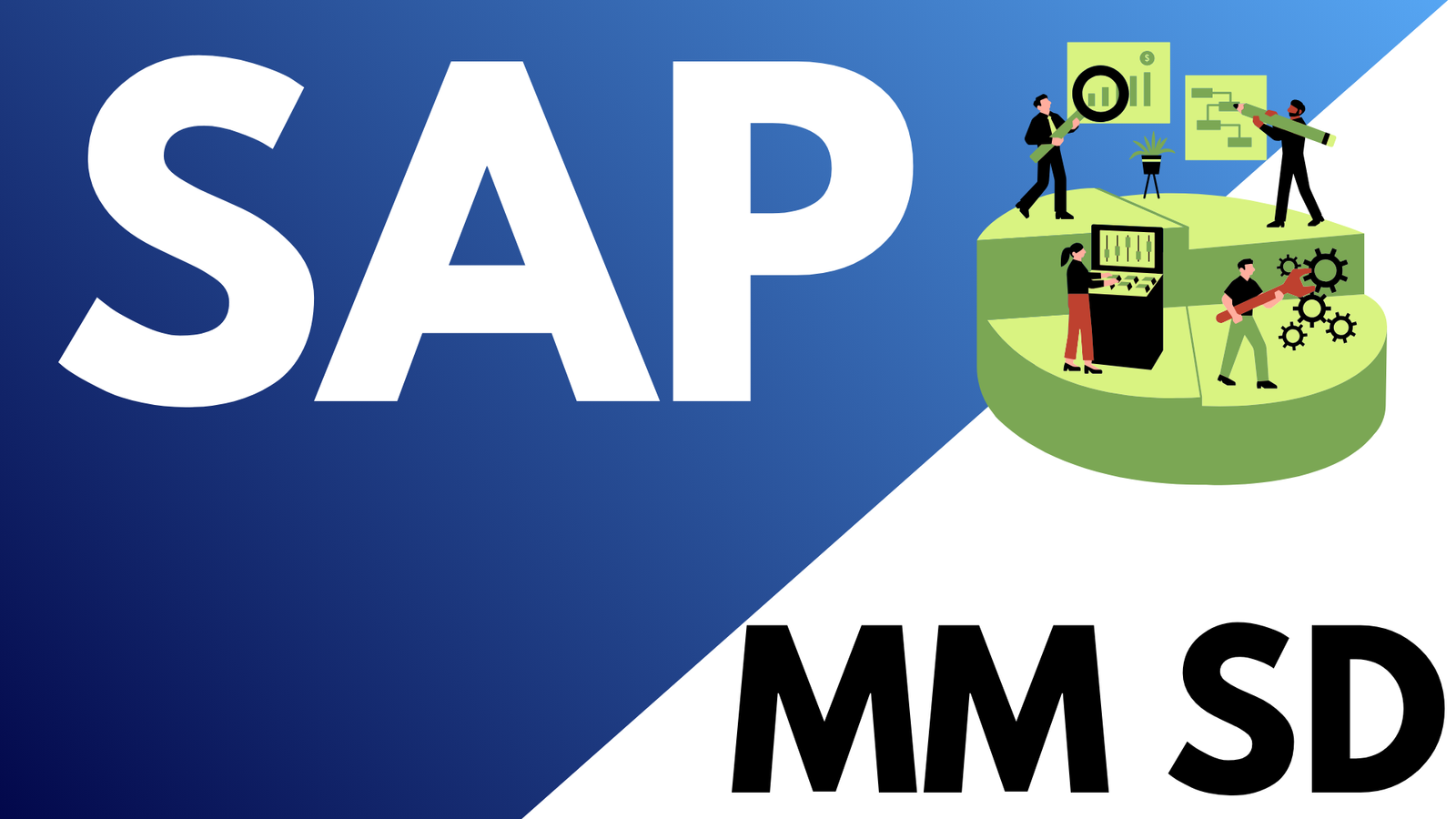
SAP MM and SD – The Backbone of Supply Chain and Sales in the SAP Ecosystem
Introduction
In the digital age, efficient supply chain and sales operations are critical to any organization’s success. This is where SAP MM (Materials Management) and SAP SD (Sales and Distribution) come into play. These modules form the foundation of logistics in the SAP ERP system. Whether you’re an aspiring SAP consultant or a professional looking to switch into the SAP domain, learning SAP MM and SD can significantly boost your career.
What is SAP MM?
SAP MM (Materials Management) is one of the most widely used modules in SAP ERP. It focuses on procurement, inventory management, and material planning, helping businesses streamline their purchasing and logistics operations.
Key Features of SAP MM:
Purchase Requisition & Order Processing
Vendor Master Management
Inventory and Stock Management
Invoice Verification
Material Requirement Planning (MRP)
What is SAP SD?
SAP SD (Sales and Distribution) handles all activities related to order-to-cash processes. It plays a critical role in managing sales orders, pricing, shipping, billing, and customer relationships.
Key Features of SAP SD:
Customer Master and Material Master Data
Sales Order Processing
Pricing and Discounts
Delivery and Shipment Processing
Billing and Invoice Management
Why Learn SAP MM and SD?
High Market Demand: Most large-scale organizations rely on SAP MM and SD for their logistics and sales processes. This means a continuous demand for skilled consultants.
Lucrative Career Roles: With MM and SD skills, you can work as:
SAP MM Consultant
SAP SD Consultant
Supply Chain Analyst
Sales Operations Executive
SAP Functional Consultant
Global Career Opportunities: SAP is implemented worldwide. Professionals trained in MM and SD often find opportunities in global MNCs.
Cross-Functional Expertise: These modules interact with other SAP modules like FICO, PP, and WM, giving you a comprehensive understanding of business processes.
Hands-On Functional Experience: Learning MM and SD gives you insights into real-world procurement and sales operations, enhancing your domain expertise.
Who Can Learn SAP MM and SD?
Freshers with a degree in B.Com, BBA, MBA, or Engineering
Logistics or sales professionals
IT professionals transitioning into ERP
Anyone interested in enterprise resource planning
Our Training Approach
Customized One-on-One Sessions
Hands-On Practice with SAP S/4HANA
Real-Time Business Scenarios
Certification and Interview Guidance
Placement Assistance
Conclusion
SAP MM and SD are more than just ERP modules—they are powerful career accelerators. If you’re serious about entering the world of SAP, mastering these modules will give you the competitive edge needed in today’s job market.
👉 Start your SAP MM/SD journey today with our expert-led training!
📞 Contact
Us or 📧 Enroll Now
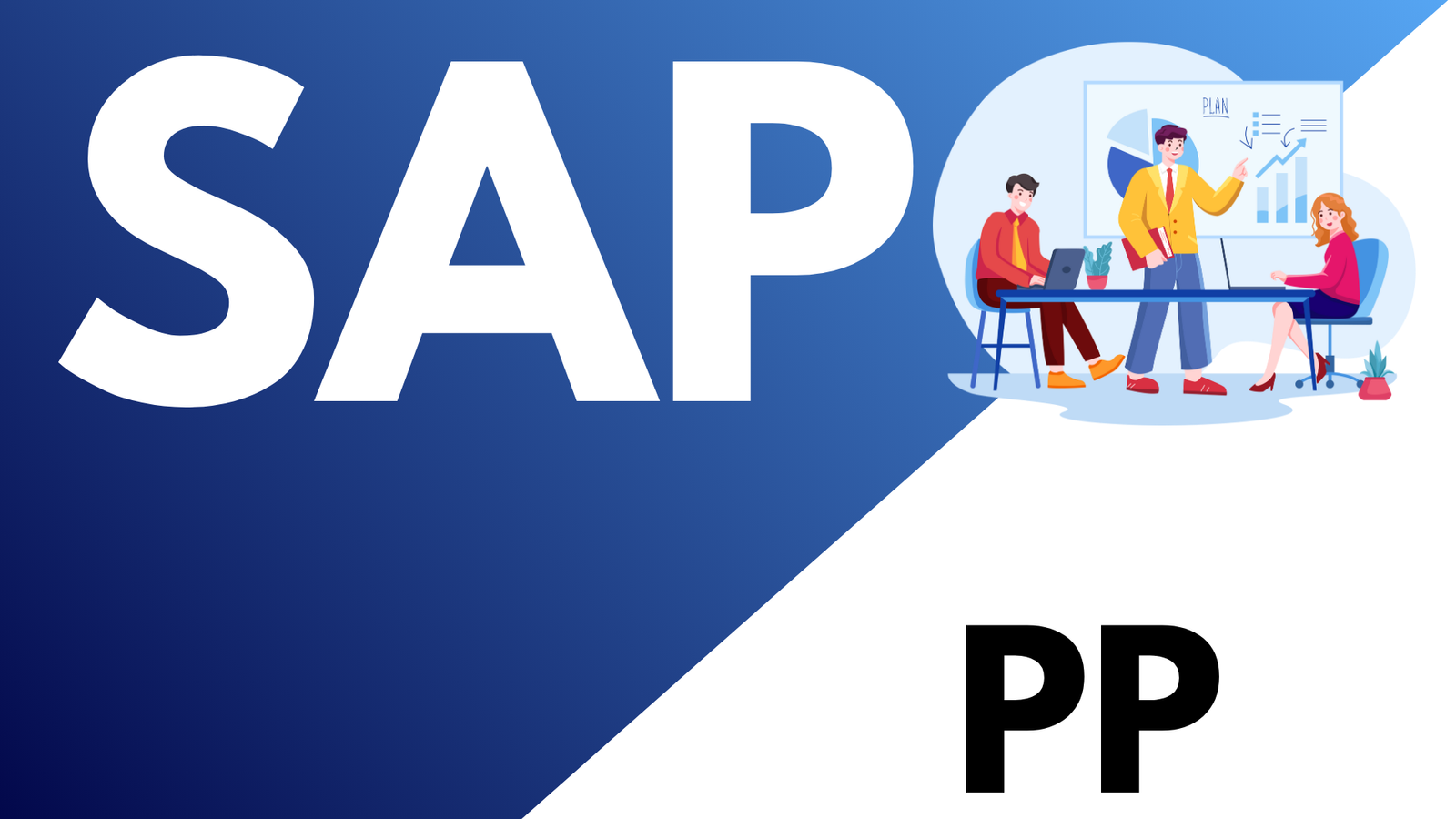
Mastering SAP PP – Streamlining Manufacturing Through Smart Production Planning
Introduction
In today’s competitive manufacturing landscape, efficiency and agility are essential. This is where SAP PP (Production Planning) becomes a game-changer. As one of the core modules in the SAP ERP system, SAP PP helps businesses effectively plan, manage, and execute their production processes. If you’re looking to build a career in the manufacturing or supply chain sector, SAP PP is a must-learn module.
What is SAP PP?
SAP Production Planning (PP) is a functional module that focuses on production processes like planning, scheduling, and execution. It integrates closely with other modules such as MM (Materials Management), SD (Sales & Distribution), and FICO (Finance), ensuring a seamless flow of data across the enterprise.
Core Components of SAP PP:
Material Requirement Planning (MRP): Calculates the materials and components required for production.
Bill of Materials (BOM): Lists all raw materials needed to manufacture a product.
Routing: Defines the steps, operations, and work centers used in production.
Work Center: Represents a production resource like a machine or labor unit.
Production Orders: Triggers actual production activities.
Capacity Planning: Ensures optimal utilization of production resources.
Why Learn SAP PP?
High Demand in Manufacturing Sector: Industries like automotive, aerospace, pharmaceuticals, and FMCG heavily rely on SAP PP for managing their production lines.
Rewarding Career Opportunities: Roles include:
SAP PP Consultant
Production Planner
Manufacturing Analyst
Supply Chain Consultant
Integration with Other SAP Modules: Learning SAP PP gives you a broader understanding of how manufacturing ties into inventory, sales, and finance operations.
Real-Time Production Control: With SAP PP, businesses can reduce waste, lower costs, and ensure timely delivery.
Practical, Industry-Relevant Skills: Gain hands-on knowledge used by real-world manufacturing companies.
Who Can Learn SAP PP?
Mechanical/Industrial/Production Engineers
Fresh graduates looking to enter ERP or manufacturing domains
Working professionals in production or operations roles
SAP functional consultants seeking cross-training
What Our SAP PP Training Offers:
One-on-One Personalized Coaching
Live Projects and Real-Time Case Studies
S/4HANA-Based Curriculum
Certification Preparation Support
Interview and Placement Assistance
Conclusion
SAP PP is more than just a module — it’s a strategic tool that drives manufacturing efficiency and business success. Mastering SAP PP can open doors to rewarding careers and deep expertise in production planning.
👉 Start your SAP PP journey today with our expert-led training!
📞 Contact
Us or 📧 Enroll Now
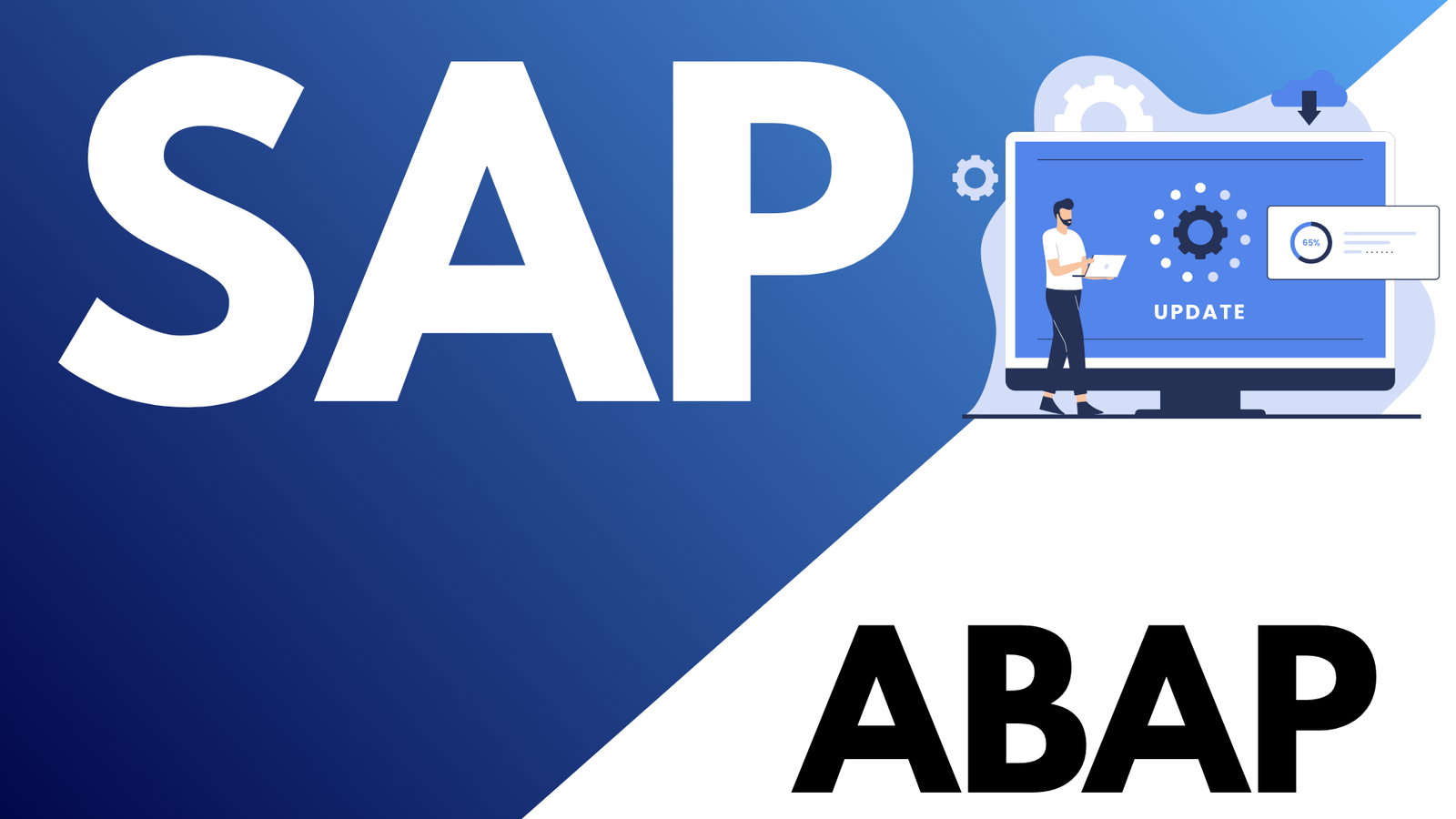
SAP ABAP – The Programming Backbone of SAP ERP
Introduction
Behind every powerful SAP application lies a strong technical foundation—and that foundation is SAP ABAP (Advanced Business Application Programming). Whether you’re an aspiring developer or an IT professional exploring SAP, learning ABAP can unlock immense career opportunities in SAP development, customization, and integration.
What is SAP ABAP?
SAP ABAP is a high-level programming language created by SAP to develop applications on the SAP ERP platform. It is used to build reports, interfaces, forms, enhancements, and custom modules tailored to specific business needs.
Custom business
logic
Enhancements to
standard SAP modules
Integration
with external systems
Smart Forms and
SAP Scripts
Workflow
automation
Why Learn SAP ABAP?
Work on the Core of SAP Systems: SAP ABAP developers build and customize business applications that power large enterprises globally.
High-Demand Job Role: With thousands of businesses running on SAP, there’s always a strong demand for skilled ABAP developers.
Opportunities with Global Clients: SAP ABAP professionals are employed across industries—banking, retail, logistics, pharma, and manufacturing.
Bridge Between Functional and Technical: ABAP developers often work closely with SAP functional consultants, gaining insights into both business and technology.
Foundation for Advanced Roles: Learning ABAP is the first step toward advanced SAP technologies like:
SAP UI5/Fiori (Frontend Development)
OData and SAP Gateway Services
SAP BTP and Cloud Platform Development
Key Concepts in SAP ABAP You Will Learn:
- Data Dictionary Objects (Tables, Views, Domains)
- Reports: Classical & Interactive
- Module Pool Programming
- Internal Tables & ALV Reports
- BAPI, BADI, User Exits, Enhancements
- Smart Forms and SAP Scripts
- ABAP Debugging and Performance Tuning
- Introduction to Object-Oriented ABAP (OOABAP)
Who Should Learn SAP ABAP?
Freshers with a background in Computer Science or IT
Java/.NET developers transitioning into SAP
Professionals looking for technical roles in ERP
Engineering graduates interested in SAP development
Why Train with Us?
One-on-One Mentorship
Hands-On Real-Time Projects
S/4HANA-Based ABAP Training
Interview and Certification Preparation
Career Guidance & Placement Support
Conclusion
SAP ABAP is the foundation of SAP development and customization. Mastering ABAP opens doors to exciting roles in SAP technical consulting, development, and cloud integration. Join our expert-led training and start your SAP development journey today!
👉 Ready to become an SAP ABAP developer?
📞 Contact
Us or 📧 Enroll Now
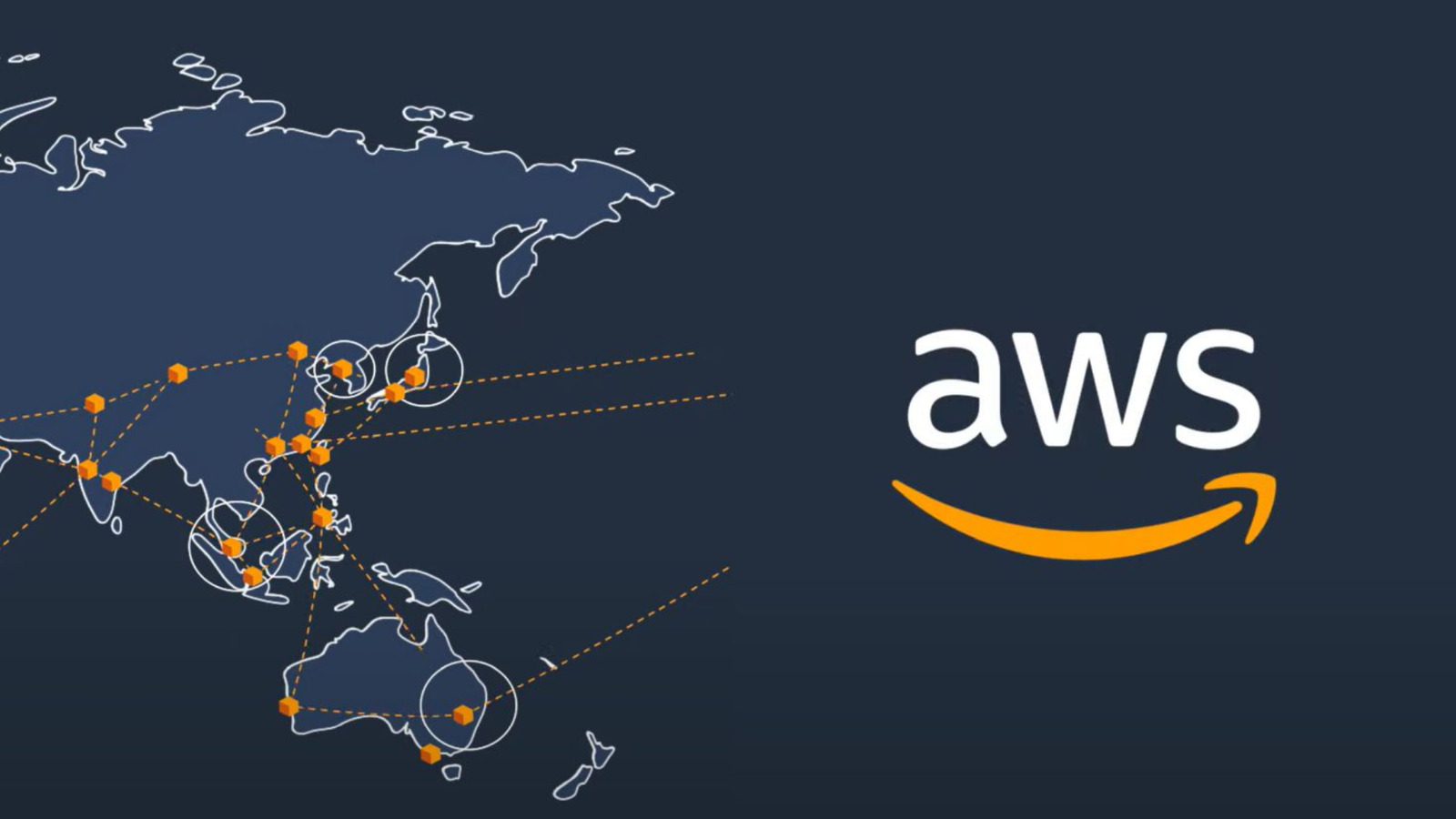
Why AWS and DevOps Are the Smartest Career Moves You Can Make in 2025
Introduction
In today’s fast-paced tech landscape, two skills stand out as game-changers: Amazon Web Services (AWS) and DevOps. Together, they represent the future of cloud-based infrastructure and automated software delivery. If you’re looking to build a high-paying, future-proof career in IT, now is the perfect time to learn AWS and DevOps.
What is AWS?
Amazon Web Services (AWS) is the world’s leading cloud computing platform, offering scalable, reliable, and secure cloud infrastructure for businesses of all sizes—from startups to global enterprises like Netflix and NASA.
Key Services You’ll Learn in AWS Training:
- EC2 (Virtual Servers)
- S3 (Cloud Storage)
- RDS (Relational Database Service)
- VPC (Networking)
- Lambda (Serverless Computing)
- IAM (Identity & Access Management)
- CloudWatch (Monitoring)
What is DevOps?
DevOps is a culture and set of practices that bridge development (Dev) and IT operations (Ops), enabling faster software delivery and better collaboration. It emphasizes automation, continuous integration/deployment (CI/CD), and infrastructure as code (IaC).
Core Tools You’ll Learn in DevOps Training:
- Git & GitHub (Version Control)
- Jenkins (CI/CD Pipeline)
- Docker (Containerization)
- Kubernetes (Container Orchestration)
- Ansible & Terraform (Infrastructure Automation)
- Prometheus, Grafana, CloudWatch (Monitoring)
Why Learn AWS and DevOps Together?
- High Demand, High Salary: AWS and DevOps professionals are among the top earners in the IT industry. Roles include DevOps Engineer, AWS Solutions Architect, Cloud Engineer, and Site Reliability Engineer.
- Explosive Market Growth: Cloud and DevOps adoption is skyrocketing across every sector—from fintech to healthcare.
- Perfect Skill Pairing: AWS provides the infrastructure, while DevOps delivers the automation and scalability required for modern deployments.
- Global Opportunities: These skills open doors to remote jobs and international projects with top-tier companies.
Who Can Learn AWS & DevOps?
- Freshers with IT, CS, or engineering backgrounds
- Software developers looking to expand their skillset
- System admins and network engineers
- IT professionals transitioning into cloud/automation roles
What Our AWS & DevOps Courses Offer:
- ✅ One-on-One Expert Mentoring
- ✅ Hands-On Labs and Real-Time Projects
- ✅ Certification Preparation (AWS + DevOps Tools)
- ✅ Career Support & Interview Coaching
- ✅ S/4HANA, Linux, and Cloud Fundamentals Covered
Certifications You Can Target:
- AWS Certified Solutions Architect – Associate
- AWS Certified DevOps Engineer – Professional
- Certified Kubernetes Administrator (CKA)
- Docker and Jenkins Mastery Certificates
Conclusion
The demand for cloud and DevOps skills is at an all-time high—and only growing. By learning AWS and DevOps, you’re not just gaining two in-demand skills—you’re preparing for a resilient and high-impact career in global IT.
👉 Ready to level up? Join our
AWS & DevOps training today!
📞 Contact Us | 💻 Enroll Now
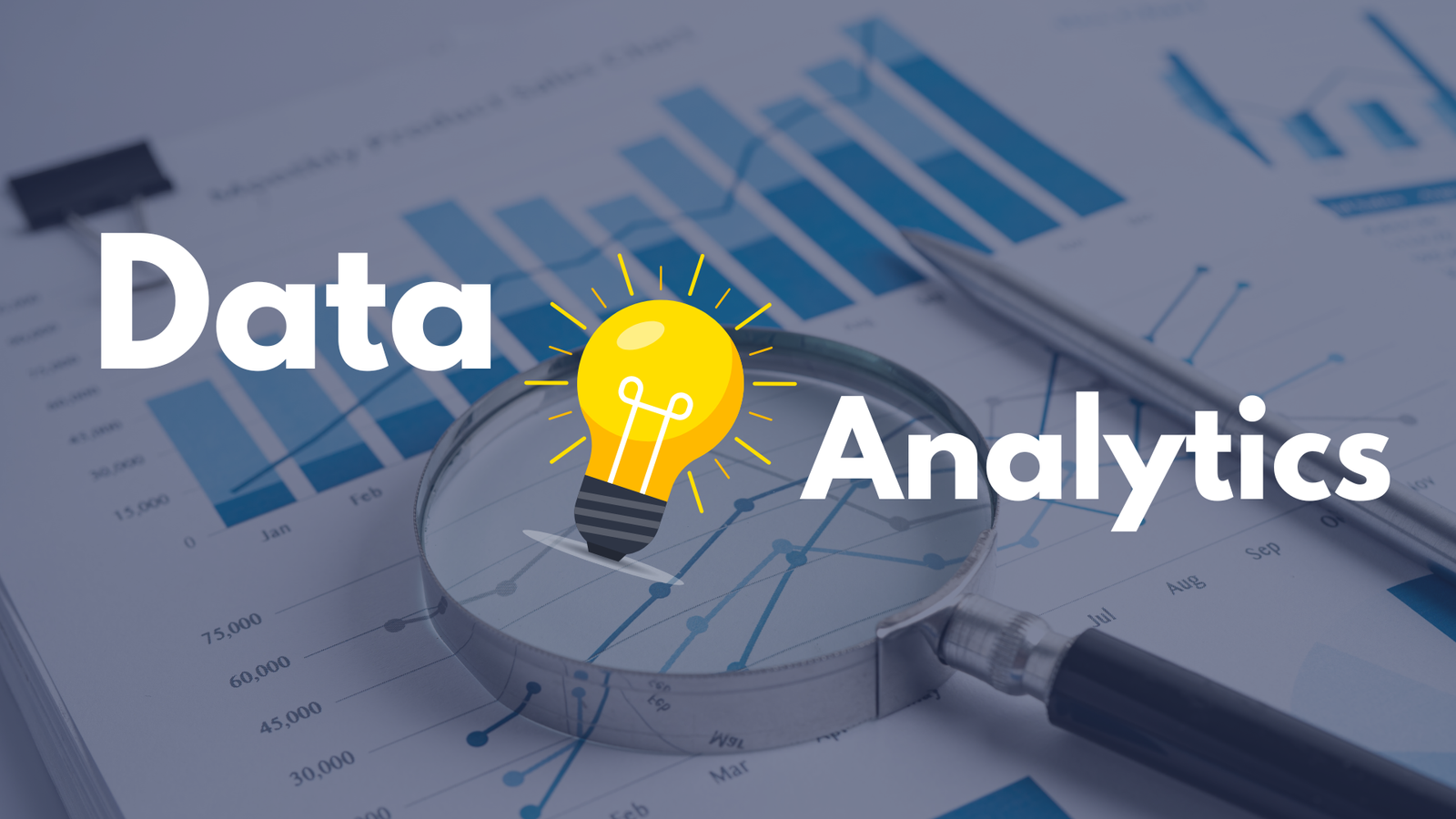
Become a Data Expert – Why Learning Data Analytics & Data Science in 2025 Is a Game-Changer
Introduction
Data is the new oil—and businesses around the world are drilling deep into it to unlock insights, drive innovation, and make better decisions. Whether you’re a beginner or a working professional, learning Data Analytics (DA) and Data Science (DS) in 2025 offers one of the most promising and rewarding career paths.
What is Data Analytics?
Data Analytics involves examining raw data to identify trends, patterns, and actionable insights. It is widely used in industries such as finance, healthcare, retail, and marketing.
Skills You’ll Learn in Data Analytics:
- Excel & SQL (Data Querying & Management)
- Power BI / Tableau (Data Visualization)
- Python for Data Analysis
- Statistical Techniques
- Business Intelligence Tools
What is Data Science?
Data Science goes a step beyond analytics. It combines programming, mathematics, statistics, and machine learning to build predictive models and solve complex business problems.
Skills You’ll Learn in Data Science:
- Python/R Programming
- Data Wrangling & Cleaning
- Exploratory Data Analysis (EDA)
- Machine Learning Algorithms
- Model Building & Evaluation
- Deep Learning (Intro)
- Real-time Projects Using Jupyter Notebooks
Why Choose a Career in DA or DS?
- Skyrocketing Demand: Every industry needs data professionals—from tech and finance to healthcare and retail.
- High Salary Packages: Entry-level salaries are competitive, and experienced professionals can earn 6–7 figures annually.
- Global Job Opportunities: DA/DS professionals are in demand worldwide—including India, USA, Canada, Germany, and beyond.
- Cross-Domain Opportunities: You don’t need a tech background to succeed—many professionals transition from finance, HR, marketing, and operations.
Who Can Learn DA and DS?
- Freshers from any background (preferably math, commerce, or science)
- Working professionals from any domain
- Engineers and IT professionals
- MBA or BBA graduates
- Anyone passionate about numbers and problem-solving
Why Choose Our Data Analytics & Data Science Training?
- ✅ One-on-One Personalized Mentoring
- ✅ Hands-On Projects with Real Datasets
- ✅ Live Tool Training: Power BI, Python, Jupyter, SQL, Excel
- ✅ Job-Oriented Curriculum with Interview Prep
- ✅ Flexible Timings for Working Professionals
- ✅ Placement and Certification Assistance
Certifications You Can Aim For:
- Google Data Analytics Professional Certificate
- Microsoft Certified: Data Analyst Associate
- IBM Data Science Certification
- Power BI / Tableau Professional Credentials
Conclusion
In 2025, data isn’t just a trend—it’s a career superpower. Whether you’re looking to land your first job, switch domains, or upgrade your skills, Data Analytics and Data Science offer unmatched opportunities.
👉 Ready to become a data expert? Enroll in our DA/DS training today!
📞 Contact Us | 💬 Enroll Now
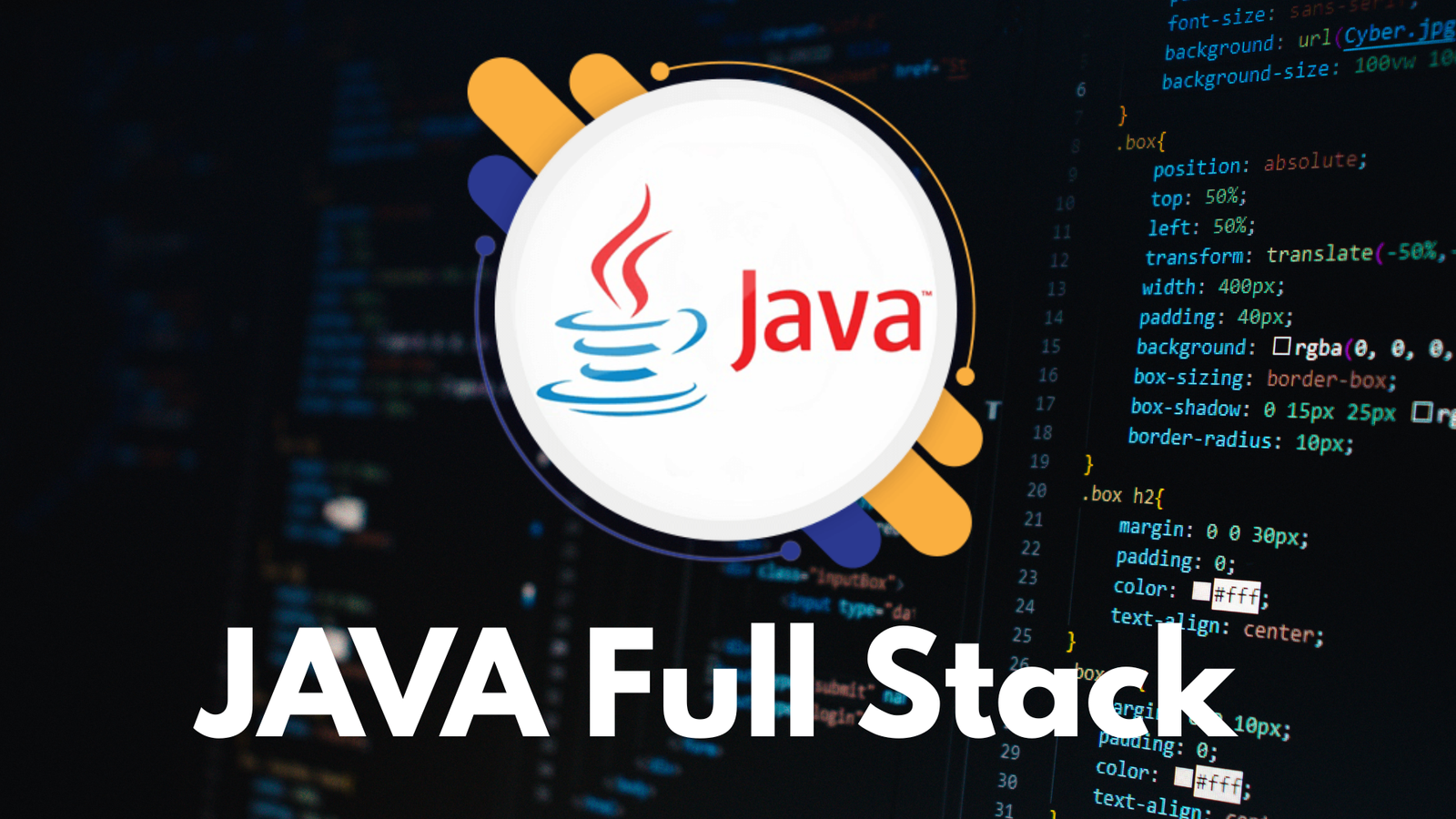
Become a Full Stack Java Developer – The Ultimate Career Path in 2025
Introduction
As businesses go digital, the demand for skilled developers who can build both front-end and back-end applications is skyrocketing. That’s where Full Stack Java Development comes in. It combines powerful backend development using Java with modern frontend technologies, making you a complete developer who can build scalable web applications end-to-end.
If you’re serious about building a future-proof career in tech, becoming a Full Stack Java Developer in 2025 is one of the smartest moves you can make.
What is Full Stack Java Development?
- Frontend (client-side): Designing responsive web interfaces
- Backend (server-side): Writing business logic and managing data using Java
- Database integration: Storing, retrieving, and managing data efficiently
- Version control and deployment: Managing code changes and launching applications
Key Technologies You’ll Learn
Frontend:
- HTML, CSS, JavaScript
- React.js / Angular
- Bootstrap
Backend:
- Core Java
- Java EE / Spring & Spring Boot
- RESTful APIs
Database & Dev Tools:
- MySQL / PostgreSQL
- Hibernate (ORM)
- Git, GitHub, Maven
- Docker, Cloud (Optional)
Why Learn Full Stack Java Development in 2025?
- All-in-One Skill Set: Design, build, test, and deploy fully functional web applications.
- High-Paying Job Opportunities: Among the most in-demand and well-paid roles worldwide.
- Career Versatility: Become a Full Stack Developer, Java Backend Engineer, or Freelance Coder.
- Global Demand: Java powers enterprise software in every industry globally.
- Strong Community & Resources: Extensive support, documentation, and job networks.
Who Should Enroll in This Course?
- Fresh graduates (B.Tech, BSc, BCA, MCA, etc.)
- Working professionals shifting to software development
- Non-tech professionals with a passion for IT
- Anyone who wants to build real-world web apps
Why Choose Our Full Stack Java Training?
- ✅ One-on-One Personalized Training
- ✅ Real-Time Projects and Hands-On Practice
- ✅ Spring Boot, REST API, MySQL, GitHub – All Covered
- ✅ Interview Preparation + Resume Building
- ✅ Certification Guidance + Placement Support
- ✅ Based on Industry-Ready Curriculum
What You’ll Build in This Course:
- 💻 E-Commerce Website
- 💬 Chat Application
- 📊 Admin Dashboard
- 📁 REST API Projects
- 🛠 Full Deployment on Cloud/GitHub
Conclusion
The tech world needs developers who can do it all—and Full Stack Java Developers are leading the way. If you’re looking to break into tech or supercharge your programming career, our Full Stack Java Developer course gives you all the skills you need to succeed.
👉 Ready to become a job-ready developer? Enroll in our Full Stack Java
course today!
📞 Contact Us | 🖱 Enroll Now

Why SAP FICO is a Must-Learn Module for Finance Professionals in 2025
Introduction
In today’s fast-paced digital economy, businesses are increasingly relying on integrated ERP systems like SAP to manage their operations efficiently. Among the various SAP modules, SAP FICO (Financial Accounting and Controlling) stands out as a core component. Whether you’re a finance graduate, an accounting professional, or an ERP enthusiast, mastering SAP FICO can open up vast career opportunities.
What is SAP FICO?
SAP FICO is a combination of two integrated modules:
- FI (Financial Accounting): Manages financial transactions, external reporting, balance sheets, and P&L statements.
- CO (Controlling): Handles internal reporting, cost centers, profit centers, budgeting, and planning.
Together, these modules help organizations track and manage their financial conditions effectively in real-time.
Why Should You Learn SAP FICO?
High Demand in the Job Market:
- Companies around the world use SAP for their financial operations.
- SAP FICO consultants are needed across industries—manufacturing, retail, healthcare, and more.
Lucrative Career Opportunities:
- High salaries and roles such as SAP FICO Consultant, Financial Analyst, ERP Specialist.
Global Recognition:
- SAP certifications are valued by top multinational companies.
- Open doors to international job markets.
Real-Time Business Insights:
- Provide actionable insights to support business decisions using real-time financial data.
Future-Ready Skills:
- Adapt your skillset for SAP S/4HANA and evolving digital finance landscapes.
Who Can Learn SAP FICO?
- Finance or commerce graduates
- CA/ICWA/CPA professionals
- MBA (Finance) holders
- Accounting professionals seeking career growth
- ERP/IT professionals looking to specialize
Our SAP FICO Training Highlights:
- ✅ One-on-one expert mentoring
- ✅ Real-time project exposure
- ✅ Hands-on with S/4HANA
- ✅ Interview preparation support
- ✅ Certification guidance
Conclusion
SAP FICO remains one of the most vital and in-demand modules for finance professionals in 2025. Whether you're starting out or advancing in your finance career, FICO offers a clear, lucrative path forward. Equip yourself with future-ready skills and become a valuable asset in the global finance domain.
📞 Ready to start your SAP FICO journey? Contact Us or 📧 Enroll Now

SAP MM and SD – The Backbone of Supply Chain and Sales in the SAP Ecosystem
Introduction
In the digital age, efficient supply chain and sales operations are critical to any organization’s success. This is where SAP MM (Materials Management) and SAP SD (Sales and Distribution) come into play. These modules form the foundation of logistics in the SAP ERP system. Whether you’re an aspiring SAP consultant or a professional looking to switch into the SAP domain, learning SAP MM and SD can significantly boost your career.
What is SAP MM?
SAP MM (Materials Management) is one of the most widely used modules in SAP ERP. It focuses on procurement, inventory management, and material planning, helping businesses streamline their purchasing and logistics operations.
Key Features of SAP MM:
Purchase Requisition & Order Processing
Vendor Master Management
Inventory and Stock Management
Invoice Verification
Material Requirement Planning (MRP)
What is SAP SD?
SAP SD (Sales and Distribution) handles all activities related to order-to-cash processes. It plays a critical role in managing sales orders, pricing, shipping, billing, and customer relationships.
Key Features of SAP SD:
Customer Master and Material Master Data
Sales Order Processing
Pricing and Discounts
Delivery and Shipment Processing
Billing and Invoice Management
Why Learn SAP MM and SD?
High Market Demand: Most large-scale organizations rely on SAP MM and SD for their logistics and sales processes. This means a continuous demand for skilled consultants.
Lucrative Career Roles: With MM and SD skills, you can work as:
SAP MM Consultant
SAP SD Consultant
Supply Chain Analyst
Sales Operations Executive
SAP Functional Consultant
Global Career Opportunities: SAP is implemented worldwide. Professionals trained in MM and SD often find opportunities in global MNCs.
Cross-Functional Expertise: These modules interact with other SAP modules like FICO, PP, and WM, giving you a comprehensive understanding of business processes.
Hands-On Functional Experience: Learning MM and SD gives you insights into real-world procurement and sales operations, enhancing your domain expertise.
Who Can Learn SAP MM and SD?
Freshers with a degree in B.Com, BBA, MBA, or Engineering
Logistics or sales professionals
IT professionals transitioning into ERP
Anyone interested in enterprise resource planning
Our Training Approach
Customized One-on-One Sessions
Hands-On Practice with SAP S/4HANA
Real-Time Business Scenarios
Certification and Interview Guidance
Placement Assistance
Conclusion
SAP MM and SD are more than just ERP modules—they are powerful career accelerators. If you’re serious about entering the world of SAP, mastering these modules will give you the competitive edge needed in today’s job market.
👉 Start your SAP MM/SD journey today with our expert-led training!
📞 Contact
Us or 📧 Enroll Now

Mastering SAP PP – Streamlining Manufacturing Through Smart Production Planning
Introduction
In today’s competitive manufacturing landscape, efficiency and agility are essential. This is where SAP PP (Production Planning) becomes a game-changer. As one of the core modules in the SAP ERP system, SAP PP helps businesses effectively plan, manage, and execute their production processes. If you’re looking to build a career in the manufacturing or supply chain sector, SAP PP is a must-learn module.
What is SAP PP?
SAP Production Planning (PP) is a functional module that focuses on production processes like planning, scheduling, and execution. It integrates closely with other modules such as MM (Materials Management), SD (Sales & Distribution), and FICO (Finance), ensuring a seamless flow of data across the enterprise.
Core Components of SAP PP:
Material Requirement Planning (MRP): Calculates the materials and components required for production.
Bill of Materials (BOM): Lists all raw materials needed to manufacture a product.
Routing: Defines the steps, operations, and work centers used in production.
Work Center: Represents a production resource like a machine or labor unit.
Production Orders: Triggers actual production activities.
Capacity Planning: Ensures optimal utilization of production resources.
Why Learn SAP PP?
High Demand in Manufacturing Sector: Industries like automotive, aerospace, pharmaceuticals, and FMCG heavily rely on SAP PP for managing their production lines.
Rewarding Career Opportunities: Roles include:
SAP PP Consultant
Production Planner
Manufacturing Analyst
Supply Chain Consultant
Integration with Other SAP Modules: Learning SAP PP gives you a broader understanding of how manufacturing ties into inventory, sales, and finance operations.
Real-Time Production Control: With SAP PP, businesses can reduce waste, lower costs, and ensure timely delivery.
Practical, Industry-Relevant Skills: Gain hands-on knowledge used by real-world manufacturing companies.
Who Can Learn SAP PP?
Mechanical/Industrial/Production Engineers
Fresh graduates looking to enter ERP or manufacturing domains
Working professionals in production or operations roles
SAP functional consultants seeking cross-training
What Our SAP PP Training Offers:
One-on-One Personalized Coaching
Live Projects and Real-Time Case Studies
S/4HANA-Based Curriculum
Certification Preparation Support
Interview and Placement Assistance
Conclusion
SAP PP is more than just a module — it’s a strategic tool that drives manufacturing efficiency and business success. Mastering SAP PP can open doors to rewarding careers and deep expertise in production planning.
👉 Start your SAP PP journey today with our expert-led training!
📞 Contact
Us or 📧 Enroll Now

SAP ABAP – The Programming Backbone of SAP ERP
Introduction
Behind every powerful SAP application lies a strong technical foundation—and that foundation is SAP ABAP (Advanced Business Application Programming). Whether you’re an aspiring developer or an IT professional exploring SAP, learning ABAP can unlock immense career opportunities in SAP development, customization, and integration.
What is SAP ABAP?
SAP ABAP is a high-level programming language created by SAP to develop applications on the SAP ERP platform. It is used to build reports, interfaces, forms, enhancements, and custom modules tailored to specific business needs.
Custom business
logic
Enhancements to
standard SAP modules
Integration
with external systems
Smart Forms and
SAP Scripts
Workflow
automation
Why Learn SAP ABAP?
Work on the Core of SAP Systems: SAP ABAP developers build and customize business applications that power large enterprises globally.
High-Demand Job Role: With thousands of businesses running on SAP, there’s always a strong demand for skilled ABAP developers.
Opportunities with Global Clients: SAP ABAP professionals are employed across industries—banking, retail, logistics, pharma, and manufacturing.
Bridge Between Functional and Technical: ABAP developers often work closely with SAP functional consultants, gaining insights into both business and technology.
Foundation for Advanced Roles: Learning ABAP is the first step toward advanced SAP technologies like:
SAP UI5/Fiori (Frontend Development)
OData and SAP Gateway Services
SAP BTP and Cloud Platform Development
Key Concepts in SAP ABAP You Will Learn:
- Data Dictionary Objects (Tables, Views, Domains)
- Reports: Classical & Interactive
- Module Pool Programming
- Internal Tables & ALV Reports
- BAPI, BADI, User Exits, Enhancements
- Smart Forms and SAP Scripts
- ABAP Debugging and Performance Tuning
- Introduction to Object-Oriented ABAP (OOABAP)
Who Should Learn SAP ABAP?
Freshers with a background in Computer Science or IT
Java/.NET developers transitioning into SAP
Professionals looking for technical roles in ERP
Engineering graduates interested in SAP development
Why Train with Us?
One-on-One Mentorship
Hands-On Real-Time Projects
S/4HANA-Based ABAP Training
Interview and Certification Preparation
Career Guidance & Placement Support
Conclusion
SAP ABAP is the foundation of SAP development and customization. Mastering ABAP opens doors to exciting roles in SAP technical consulting, development, and cloud integration. Join our expert-led training and start your SAP development journey today!
👉 Ready to become an SAP ABAP developer?
📞 Contact
Us or 📧 Enroll Now

Become a Full Stack Java Developer – The Ultimate Career Path in 2025
Introduction
As businesses go digital, the demand for skilled developers who can build both front-end and back-end applications is skyrocketing. That’s where Full Stack Java Development comes in. It combines powerful backend development using Java with modern frontend technologies, making you a complete developer who can build scalable web applications end-to-end.
If you’re serious about building a future-proof career in tech, becoming a Full Stack Java Developer in 2025 is one of the smartest moves you can make.
What is Full Stack Java Development?
- Frontend (client-side): Designing responsive web interfaces
- Backend (server-side): Writing business logic and managing data using Java
- Database integration: Storing, retrieving, and managing data efficiently
- Version control and deployment: Managing code changes and launching applications
Key Technologies You’ll Learn
Frontend:
- HTML, CSS, JavaScript
- React.js / Angular
- Bootstrap
Backend:
- Core Java
- Java EE / Spring & Spring Boot
- RESTful APIs
Database & Dev Tools:
- MySQL / PostgreSQL
- Hibernate (ORM)
- Git, GitHub, Maven
- Docker, Cloud (Optional)
Why Learn Full Stack Java Development in 2025?
- All-in-One Skill Set: Design, build, test, and deploy fully functional web applications.
- High-Paying Job Opportunities: Among the most in-demand and well-paid roles worldwide.
- Career Versatility: Become a Full Stack Developer, Java Backend Engineer, or Freelance Coder.
- Global Demand: Java powers enterprise software in every industry globally.
- Strong Community & Resources: Extensive support, documentation, and job networks.
Who Should Enroll in This Course?
- Fresh graduates (B.Tech, BSc, BCA, MCA, etc.)
- Working professionals shifting to software development
- Non-tech professionals with a passion for IT
- Anyone who wants to build real-world web apps
Why Choose Our Full Stack Java Training?
- ✅ One-on-One Personalized Training
- ✅ Real-Time Projects and Hands-On Practice
- ✅ Spring Boot, REST API, MySQL, GitHub – All Covered
- ✅ Interview Preparation + Resume Building
- ✅ Certification Guidance + Placement Support
- ✅ Based on Industry-Ready Curriculum
What You’ll Build in This Course:
- 💻 E-Commerce Website
- 💬 Chat Application
- 📊 Admin Dashboard
- 📁 REST API Projects
- 🛠 Full Deployment on Cloud/GitHub
Conclusion
The tech world needs developers who can do it all—and Full Stack Java Developers are leading the way. If you’re looking to break into tech or supercharge your programming career, our Full Stack Java Developer course gives you all the skills you need to succeed.
👉 Ready to become a job-ready developer? Enroll in our Full Stack Java
course today!
📞 Contact Us | 🖱 Enroll Now

Become a Data Expert – Why Learning Data Analytics & Data Science in 2025 Is a Game-Changer
Introduction
Data is the new oil—and businesses around the world are drilling deep into it to unlock insights, drive innovation, and make better decisions. Whether you’re a beginner or a working professional, learning Data Analytics (DA) and Data Science (DS) in 2025 offers one of the most promising and rewarding career paths.
What is Data Analytics?
Data Analytics involves examining raw data to identify trends, patterns, and actionable insights. It is widely used in industries such as finance, healthcare, retail, and marketing.
Skills You’ll Learn in Data Analytics:
- Excel & SQL (Data Querying & Management)
- Power BI / Tableau (Data Visualization)
- Python for Data Analysis
- Statistical Techniques
- Business Intelligence Tools
What is Data Science?
Data Science goes a step beyond analytics. It combines programming, mathematics, statistics, and machine learning to build predictive models and solve complex business problems.
Skills You’ll Learn in Data Science:
- Python/R Programming
- Data Wrangling & Cleaning
- Exploratory Data Analysis (EDA)
- Machine Learning Algorithms
- Model Building & Evaluation
- Deep Learning (Intro)
- Real-time Projects Using Jupyter Notebooks
Why Choose a Career in DA or DS?
- Skyrocketing Demand: Every industry needs data professionals—from tech and finance to healthcare and retail.
- High Salary Packages: Entry-level salaries are competitive, and experienced professionals can earn 6–7 figures annually.
- Global Job Opportunities: DA/DS professionals are in demand worldwide—including India, USA, Canada, Germany, and beyond.
- Cross-Domain Opportunities: You don’t need a tech background to succeed—many professionals transition from finance, HR, marketing, and operations.
Who Can Learn DA and DS?
- Freshers from any background (preferably math, commerce, or science)
- Working professionals from any domain
- Engineers and IT professionals
- MBA or BBA graduates
- Anyone passionate about numbers and problem-solving
Why Choose Our Data Analytics & Data Science Training?
- ✅ One-on-One Personalized Mentoring
- ✅ Hands-On Projects with Real Datasets
- ✅ Live Tool Training: Power BI, Python, Jupyter, SQL, Excel
- ✅ Job-Oriented Curriculum with Interview Prep
- ✅ Flexible Timings for Working Professionals
- ✅ Placement and Certification Assistance
Certifications You Can Aim For:
- Google Data Analytics Professional Certificate
- Microsoft Certified: Data Analyst Associate
- IBM Data Science Certification
- Power BI / Tableau Professional Credentials
Conclusion
In 2025, data isn’t just a trend—it’s a career superpower. Whether you’re looking to land your first job, switch domains, or upgrade your skills, Data Analytics and Data Science offer unmatched opportunities.
👉 Ready to become a data expert? Enroll in our DA/DS training today!
📞 Contact Us | 💬 Enroll Now

Why AWS and DevOps Are the Smartest Career Moves You Can Make in 2025
Introduction
In today’s fast-paced tech landscape, two skills stand out as game-changers: Amazon Web Services (AWS) and DevOps. Together, they represent the future of cloud-based infrastructure and automated software delivery. If you’re looking to build a high-paying, future-proof career in IT, now is the perfect time to learn AWS and DevOps.
What is AWS?
Amazon Web Services (AWS) is the world’s leading cloud computing platform, offering scalable, reliable, and secure cloud infrastructure for businesses of all sizes—from startups to global enterprises like Netflix and NASA.
Key Services You’ll Learn in AWS Training:
- EC2 (Virtual Servers)
- S3 (Cloud Storage)
- RDS (Relational Database Service)
- VPC (Networking)
- Lambda (Serverless Computing)
- IAM (Identity & Access Management)
- CloudWatch (Monitoring)
What is DevOps?
DevOps is a culture and set of practices that bridge development (Dev) and IT operations (Ops), enabling faster software delivery and better collaboration. It emphasizes automation, continuous integration/deployment (CI/CD), and infrastructure as code (IaC).
Core Tools You’ll Learn in DevOps Training:
- Git & GitHub (Version Control)
- Jenkins (CI/CD Pipeline)
- Docker (Containerization)
- Kubernetes (Container Orchestration)
- Ansible & Terraform (Infrastructure Automation)
- Prometheus, Grafana, CloudWatch (Monitoring)
Why Learn AWS and DevOps Together?
- High Demand, High Salary: AWS and DevOps professionals are among the top earners in the IT industry. Roles include DevOps Engineer, AWS Solutions Architect, Cloud Engineer, and Site Reliability Engineer.
- Explosive Market Growth: Cloud and DevOps adoption is skyrocketing across every sector—from fintech to healthcare.
- Perfect Skill Pairing: AWS provides the infrastructure, while DevOps delivers the automation and scalability required for modern deployments.
- Global Opportunities: These skills open doors to remote jobs and international projects with top-tier companies.
Who Can Learn AWS & DevOps?
- Freshers with IT, CS, or engineering backgrounds
- Software developers looking to expand their skillset
- System admins and network engineers
- IT professionals transitioning into cloud/automation roles
What Our AWS & DevOps Courses Offer:
- ✅ One-on-One Expert Mentoring
- ✅ Hands-On Labs and Real-Time Projects
- ✅ Certification Preparation (AWS + DevOps Tools)
- ✅ Career Support & Interview Coaching
- ✅ S/4HANA, Linux, and Cloud Fundamentals Covered
Certifications You Can Target:
- AWS Certified Solutions Architect – Associate
- AWS Certified DevOps Engineer – Professional
- Certified Kubernetes Administrator (CKA)
- Docker and Jenkins Mastery Certificates
Conclusion
The demand for cloud and DevOps skills is at an all-time high—and only growing. By learning AWS and DevOps, you’re not just gaining two in-demand skills—you’re preparing for a resilient and high-impact career in global IT.
👉 Ready to level up? Join our
AWS & DevOps training today!
📞 Contact Us | 💻 Enroll Now









